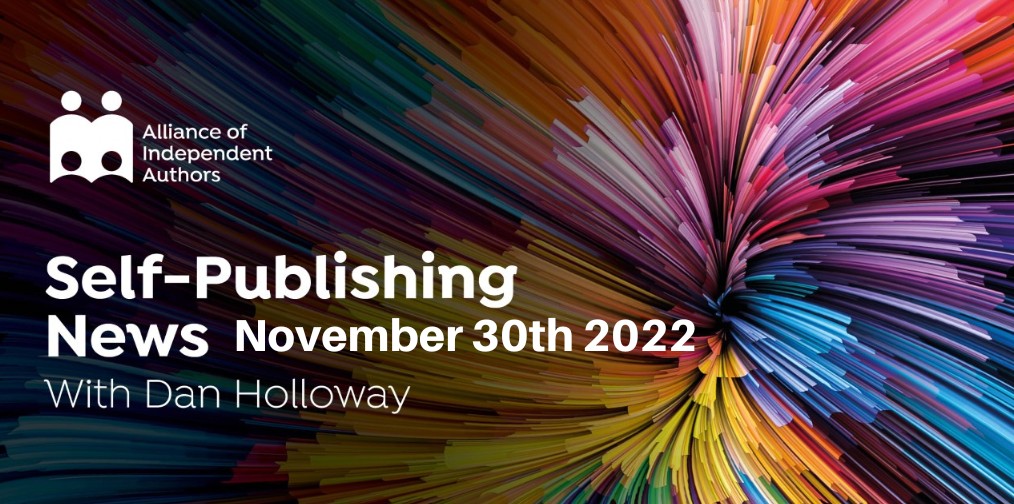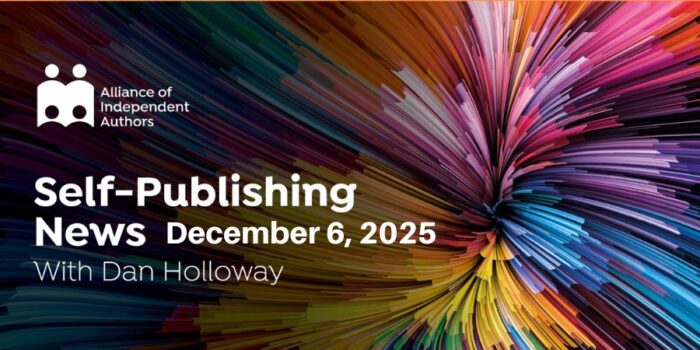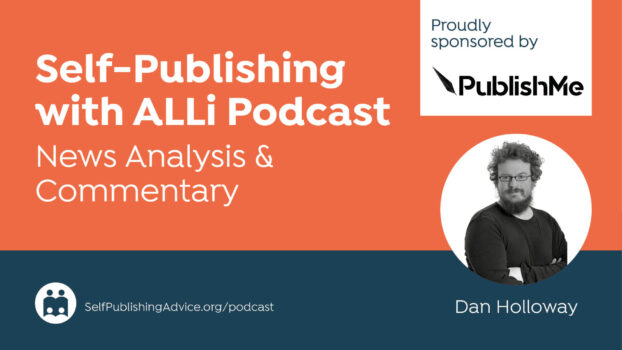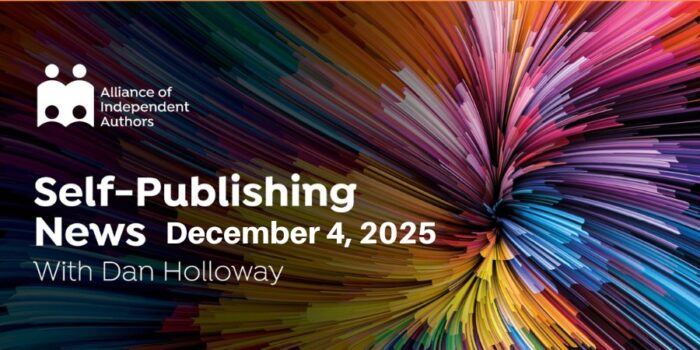In this week's Self-Publishing News Special, ALLi News Editor Dan Holloway looks at Spotify's roll-out to English-speaking markets outside the US.

ALLi's News Editor Dan Holloway
Do listen to November's Self-publishing News podcast here. Howard and I are talking about the question everyone's asking: should we leave Twitter and if we do, where do we go? For those of us who haven't left twitter, this week's #indieauthorchat is in its usual Wednesday slot, at 8pm UK time, 3pm Eastern Time. Tim will be guiding us through a discussion of whether publishing needs to be commercial.
Spotify Rollout Continues to Other English-Speaking Markets
When I look back on the year, it’s likely that the name that will dominate the review will be Spotify. In this week’s news, the rollout of their audiobook programme continues. They launched their bid to dominate the audiobook market by making their library of 300,000 titles available in the US. One of the things that sparked particular interest about that launch was their decision to sell audiobooks a la carte, eschewing the subscription model many now think of as the default way to consume creative content.
ALLi members have been disappointed by how the rollout of audiobooks has happened. I have seen complaints that it is impossible to “find” audiobooks by searching, making the ability to buy titles of somewhat limited value. Spotify seems to be aware of this issue, and working towards a resolution. But the cause of at least part of the problem, they claim, is around royalty payments to other platforms. The threat of having to offload a slice of sales to the likes of Apple if they were to sell titles “in-app” means anyone who wants to buy a book has to go through the rather torturous process of navigating out of the app and into the Spotify website where they can buy the book they were interested in from the in-app teaser before returning to whatever they were listening to in the app.
It’s not just buying that’s less than straightforward. At present, discovery happens via limited curation into people’s timelines. Editors select books and feed them into people’s recommendations. Ultimately, the company hopes for the recommendation process to be algorithm-driven. But that’s a way off yet.
BookTok is Introducing Young People to Reading
BookTok is another of the year’s biggest phenomena. A new survey commissioned by the Publishers’ Association provides a fascinating insight into just how influential the literary corner of TikTok has become.
The survey contacted more than 2000 16-25-year-olds. What it found is that BookTok has become not just a go-to place for readers but somewhere that is getting people reading in the first place. More than half said they go to BookTok for reading recommendations, and two-thirds ended up reading something thanks to BookTok that they wouldn’t otherwise have chosen. The platform is also, which is no surprise, a source of community, with a fifth of those surveyed saying they went there for the community and a sixth saying they had found friends there.
And more than half (59%) said that BookTok or other influencers had switched them on to reading. All of this makes it clear just how many functions TikTok plays in young people’s reading lives. And as a result, how deeply embedded it has become in our literary landscape.
This is one reason why publishers are quite so keen to get involved and see if they can become part of that landscape. But as other episodes have shown, like the way the platform has been a hub for manipulating Amazon returns policy, and the brutal response to writers like Alex Aster who “made it” through the platform, what these figures demonstrate is that TikTok is a fabulous place for readers. Being a fabulous place for authors is a slightly different thing. And being a place where authors can naturally sell to readers is a way more different thing again.
All About Audio Looks at France's Emerging Audiobook Market While Futurebook Asks Where Next
On the subject of audio, last week saw Bookwire organise an event to discuss the future of audiobooks in France. All About Audio's programme was fascinating. It started from the premise that the market in France is in its infancy. Much of the talk was about questions like the role of the voice artist, comparison to other creative media, and how to decide on the value of audiobooks. These are the kind of questions we have become used to. In a way, emerging markets need to answer the questions for themselves. One thing audio has taught us with its very fragmented markets is that each country really is different and might suit a different approach (and the advantage for us is we are free to exploit those differences). But doing so while learning from others' experience does make for the possibility of faster and smoother growth.
This provides an interesting contrast to Futurebook. There the focus, reflecting the more mature market, was less on “Where for audiobooks?” and more on “Where NEXT for audiobooks?” There seems to be a growing awareness that audiobooks are, as Michele Cobb of the Audio Publishers Association put it, simply part of audio. This is hardly surprising, given Spotify's moves. And it chimes with Daniel Ek's promise to make Spotify the one stop shop for audio. What it means for us as authors is that the opportunity to get our work in front of readers is expanding. Which means plenty to explore. But also that we need to experiment judicially. And be mindful not to spread ourselves too thin with new toys.
Self-pub;ishing News: Spotify's Continuing Audiobooks Roll-out Fails to Smooth out Initial Bumps Share on XUpcoming Conferences and Events
Bay Area Independent Publishers Association (BAIPA) – Zoom meetings the 2nd Saturday of each month




